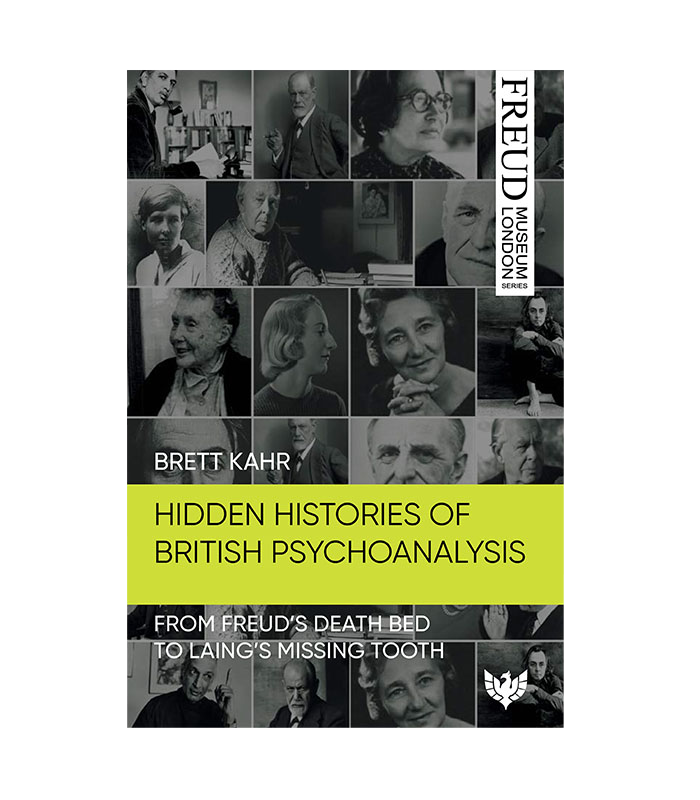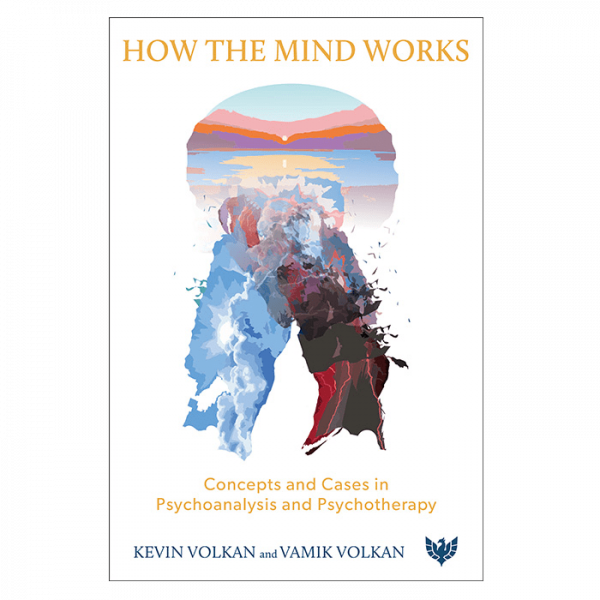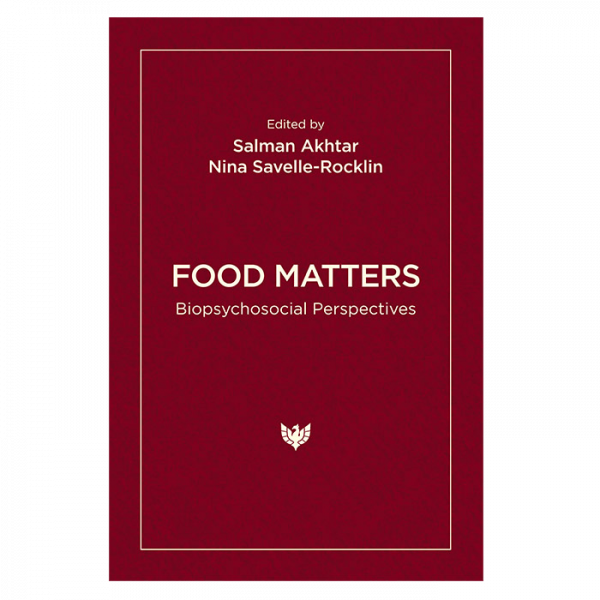About the author

Professor Brett Kahr has worked in the mental health profession for over forty years. A clinical registrant of both the British Psychoanalytic Council and the United Kingdom Council for Psychotherapy, he is Senior Fellow at the Tavistock Institute of Medical Psychology in London and, also, Visiting Professor of Psychoanalysis and Mental Health at Regent’s University London.
Over the decades, Kahr has worked in the National Health Service and in private practice in Central London with both individuals and couples. He is currently Consultant Psychotherapist to The Balint Consultancy and, additionally, Consultant in Psychology at The Bowlby Centre. He also serves as Chair of the Scholars Committee of the British Psychoanalytic Council, as well as Senior Clinical Research Fellow in Psychotherapy and Mental Health at the Centre for Child Mental Health.
Professor Kahr is the Honorary Director of Research at Freud Museum London and, also, an Honorary Fellow of the museum. Over many years, he has enjoyed the privilege of a long-standing relationship with this institution, having served as Deputy Director of the International Campaign for the Freud Museum from 1986–1987 and, more recently, as Trustee of both Freud Museum London and of Freud Museum Publications from 2011–2020.
In addition to his clinical practice, Kahr has collaborated with the media in order to promote mental health knowledge. Formerly Resident Psychotherapist on BBC2, broadcasting about mental health issues to millions of listeners, he has appeared on over one thousand radio and television programmes. In recognition of his work in this field, he has become Visiting Professor in the Faculty of Media and Communication at Bournemouth University. The United Kingdom Council for Psychotherapy recently awarded him an Honorary Fellowship for his contributions to public service.
Professor Kahr is the author of sixteen books and series editor of more than seventy-five additional titles on a wide range of subjects.
His solo-authored books cover a range of topics, including clinical investigations of extreme psychopathology and forensic mental health, such as his titles Bombs in the Consulting Room: Surviving Psychological Shrapnel and Dangerous Lunatics: Trauma, Criminality, and Forensic Psychotherapy. He has also written on Sex and the Psyche – a Waterstone’s Non-Fiction Bestseller and a chosen title in the Sunday Times Book Club – based on his study of the traumatic, unconscious roots of over 20,000 adult sexual fantasies, as well as Celebrity Mad: Why Otherwise Intelligent People Worship Fame. His historically orientated books include the very first biography of Donald Winnicott, entitled D. W. Winnicott: A Biographical Portrait, which received the Gradiva Award for Biography, as well as the popular titles, Life Lessons from Freud, Tea with Winnicott, and Coffee with Freud. Most recently, he has published Freud’s Pandemics: Surviving Global War, Spanish Flu, and the Nazis – the inaugural title in the new “Freud Museum London Series” of history books – exploring not only how Sigmund Freud navigated the tragedies of his own lifetime, but also how he would have handled the Covid-19 pandemic, and what lessons our world leaders might learn from those pioneering psychoanalytical concepts.
Kahr had the pleasure of working closely with Kate Pearce and Fernando Marques during their early careers at the old Karnac Books and is now delighted to have published his book How to Flourish as a Psychotherapist with Phoenix Publishing House.
In addition to his writing of books, Kahr also serves as Consulting Editor to The International Journal of Forensic Psychotherapy and, also, as Consultant Historian to the journal Attachment: New Directions in Psychotherapy and Relational Psychoanalysis, as well as Consultant to the Board of Couple and Family Psychoanalysis, the journal of Tavistock Relationships.






Salman Akhtar, MD, Emeritus Professor of Psychiatry, Jefferson Medical College, and Training and Supervising Analyst, Psychoanalytic Center of Philadelphia –
‘Few books are simultaneously informative, deep, playful, and pleasurable to read. Combining humility and respect for his subjects with creative audacity and understated eloquence, Brett Kahr’s Hidden Histories of British Psychoanalysis is a rare book of such sort. The two words in the title that give away the author’s passion and craft are “Hidden” (with its impish promise to unveil secrets) and “Histories” (with its sombre acknowledgment of the myriad, divergent sources, choices, and agendas in writing history). Based upon laborious archival research and personal interviews with the London glitterati of psychoanalysis (e.g. John Bowlby, Marion Milner, Enid Balint, Pearl King, R. D. Laing), Kahr offers us a penetrating glimpse into the post-Freudian developments in British psychoanalysis, while introducing us to the strengths and solidities of his dramatis personae as well as to their whims, idiosyncrasies, and occasional madnesses. This is a great contribution to our professional literature indeed!’
Sander L. Gilman, PhD, Distinguished Professor of the Liberal Arts and Sciences and Professor of Psychiatry Emeritus at Emory University –
‘This is a very sneaky book. Ostensibly it is a series of tales from the history of Anglophone psychoanalysis in the twentieth century. But, in reality, it is a readable, often funny, account by the best historian of psychoanalysis of his generation, Brett Kahr. As much autobiography as historical account, it shows what happens when a brilliant mind meets an intractable object. The essay on the young student Brett Kahr and R. D. Laing’s missing tooth is itself worth the price of the volume, and has the possibility of becoming the classic essay on the pitfalls of celebrity.’
Orna Ophir, PhD, Associate Director of The DeWitt Wallace Institute for Psychiatry, Weill-Cornell Medical College, New York, and a Member of the History of Psychoanalysis Committee of the International Psychoanalytical Association –
‘A self-described “clinical historian”, a prolific writer and biographer of Donald Winnicott, with a passion for the rigorous rendering of historical detail and the healing of the human soul’s most intractable sufferings, Brett Kahr has made a reputation for himself as the eminent narrator and in depth analyst of the vagaries and some of the most protracted motifs and aspects that animate the legacy of psychoanalysis and that of its leading and lesser-known figures (the “elderly psychoanalysts”, as he lovingly calls them, whose homes, libraries, and couches he recalls visiting here).
‘The present collection of essays adds a series of important chapters to this ongoing and captivating lifelong project. In an at once engaging and well-documented fashion, Kahr takes us back to the contingent elements that, together, gave psychoanalysis in the United Kingdom its inescapable force and necessary radiance. From Freud’s unknown English teacher, to the growth of his English speaking clinical practice, and his remarkable Anglicisation, via the untold sources and adventures related to Winnicott as filtered through his marital life, up to the contributions made by a host of significant but much less-known theorists and practitioners, from “unassuming icons” to “bad boys” in British child, adult, and couple analysis, Kahr’s unique book traces overlooked names and cases, concepts and practices, that have not received the attention they deserve in what he calls “psychoanalytical historiography”.
‘Kahr is attentive to and appreciative of the networks, both familial and professional, within which great thinkers produce their psychoanalytic ideas and do their clinical work. He relies not only on his interviews with his heroes and heroines, but also on conversations with family members, colleagues, patients, secretaries, and medical doctors alike. In a non- judgemental way, he, at times tenderly, also registers the errors, deviations, and even perversions of these great figures. There is a moving resemblance between the fragility of “psychoanalytical psycho-biographical reconstructions”, including the author’s own, and the carefully observed deterioration and bodily disintegration of the heroes and heroines portrayed as they age or fall ill: Freud’s skin, Khan’s cancer, Milner’s loss of hearing, Laing’s falling tooth, and more. Kahr is acutely aware of his heroes and heroines falling into pieces, disintegrating, even shattering “into million pieces”, and, as a clinical historian, seeks to put them back together again, precisely by finding meaning in their history.
‘There is a dark side to these stories, therefore, which the psychoanalyst in Kahr believes one needs to explore, as only the deep probing of such “shadows” yields understanding and the possibility of avoiding their repetition. If the psychoanalytic work turns ghosts into ancestors, Kahr, for his part, does the same with corpses. Indeed, his previous work on the schizophrenic feeling of bodily disintegration keeps him close to the material reality of bodies, odors, sounds, and textures, which are evinced in each one of the remarkable encounters collected in this partly oral history, which relies as much on countless hours spent in the archives.
‘Kahr’s Hidden Histories is a labor of love that in its caring attentiveness humanises the great figures on whose shoulders it stands. Highly readable and greatly enticing, this latest addition to the Freud Museum’s and Karnac’s promising new series, will speak to professionals, historians, and the wider interested reading public alike.’
Joan Raphael-Leff, PhD, Retired Professor of Psychoanalysis, and Leader of the Academic Faculty of Psychoanalytic Research at the Anna Freud Centre –
‘Using storytelling and clinical and research tools, Brett Kahr’s sorcery brings to life several well-known personalities in the British psychoanalytic panoply – its “superstars” as well as its “bad boys”. While profoundly respectful, Kahr’s thoughtful critique of rigorously sourced archival papers, oral history research, and personal interviews rewards the readers with much wisdom and inspiration from foundational figures of psychoanalysis.’
Aaron Balick, Psychology: Applied, 2023 –
‘I fear I have done Professor Kahr a disservice by sharing so many spoilers from his magnificent book. But in my defence, I have shared them with you as an encouragement for you to read it yourself. […] His commitment to this project shines from his loving descriptions of Marion Milner’s home (it needs a good clean) to his open-minded inquisitiveness into the potential motivations of those like Khan or Laing who can so easily be dismissed as heroes or villains. […] In the words of this text Brett communicates his deep enthusiasm for the hidden histories that, due to his diligence, are no longer hidden. After all, this book is the result of his exhaustive archival research alongside the interviews he personally conducted.’
Helena Michaelson, Psychodynamic Practice –
‘In this charming book of essays, Professor Brett Kahr exercises his passion and skill in historical storytelling to contextualise the personal and professional history of various aspects of 20th century British psychoanalysis. […] [This book], is a unique and welcome addition to the literature. Derived from countless interviews (over 900 alone into studies on Winnicott, including fifty of his former patients), and from devoted explorations of archival material as well as self-reflection on his various meetings, the tone of the book ranges from the anecdotal to the historiographic, and is very enjoyable […] Psychoanalysis at its very core embraces the hidden in our histories. It is a joy to read this book which embraces the hidden histories in our psychoanalysis.’
Jane Cooper, MBACP (Snr Accred), former counsellor in higher education –
‘Brett Kahr has been described as the best historian of psychoanalysis of his generation. In this informative book he shares new details from his interviews and archival research. […] Kahr is a brilliant storyteller and this enjoyable read has much to offer anyone interested in exploring the roots of modern therapy.’
Catharine Arnold, author of The Psychotherapy Century, UKCP, New Psychotherapist –
‘Professor Kahr’s Hidden Histories of British Psychoanalysis is as fascinating as a case book, and, in the tradition of Sigmund Freud, superbly well written and a joy to read. […] Hidden Histories will appeal to everyone interested in the history of psychoanalysis. For experienced practitioners, there’s the opportunity to learn more about these influential personalities, while trainees and students will find this a useful introduction. Kahr provides revealing insights into their private lives and even the frailty which makes them human. Above all, this is a very humane book, staying true to the essential tenet of psychoanalysis: a fascination with what it is to be human and the desire to understand and relieve existential suffering.’